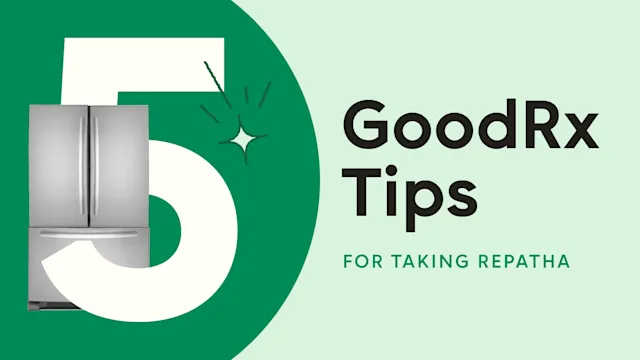Key takeaways:
Lifestyle modifications are often the first line of treatment for high cholesterol. These include following a healthy diet and getting regular exercise.
Vitamins C, D, and B3 (niacin) may help lower cholesterol as well. And probiotics, berberine, and red yeast rice are other potentially effective supplements.
While vitamins and supplements may help improve your cholesterol levels, they should not take the place of medication and lifestyle changes recommended by your healthcare provider.
If you have high cholesterol or are at risk of developing it, you may have spent some time researching the best treatments to help you manage the condition. If so, you’re on the right track.
Lifestyle modifications are often the first step toward lowering your cholesterol levels. But, in addition to modifying your diet and exercising more, it’s possible that taking certain vitamins and supplements may help.
Can vitamins and supplements help lower cholesterol?
Yes, some vitamins may help lower cholesterol. But keep in mind that vitamins aren’t a magic remedy for cholesterol. Chances are, taking vitamins will likely be part of a larger treatment plan that consists of medication, diet, and lifestyle changes. This is especially true if you’re deficient in certain nutrients.
Which vitamins and supplements work best for high cholesterol?
Right now, experts call out the eight vitamins and supplements below for their potential benefits for high cholesterol. But it’s important to talk with a healthcare provider first before taking any new supplements. Certain supplements and vitamins for high cholesterol may interact with medications or pose a risk for people with certain health conditions.
1. Vitamin D
Taking vitamin D supplements may lower total cholesterol, LDL cholesterol (low-density lipoprotein, or “bad,” cholesterol), and triglycerides. It can also raise HDL cholesterol (high-density lipoprotein, or “good,” cholesterol). But this effect is more pronounced in those with vitamin D deficiency or insufficiency who are at an increased risk of heart disease.
2. Niacin (Vitamin B3)
Prescription-level doses of niacin, or vitamin B3, have long been used to treat high cholesterol. Niacin lowers triglycerides and LDL cholesterol levels while raising HDL cholesterol.
It’s worth noting that high doses of niacin do come with many side effects, so don’t take this vitamin without a healthcare provider’s approval.
3. Vitamin C
In one meta-analysis, researchers looked at 13 studies on vitamin C and concluded that taking 500 mg per day may significantly lower LDL cholesterol and triglycerides. Unlike other supplements, though, there was no major benefit for HDL levels.
Another study on vitamin C supplementation showed similar effects on triglyceride levels in people with diabetes, but LDL and HDL levels were not affected.
4. Pantethine
Taking pantethine — the active form of pantothenic acid, or vitamin B5 — may help improve cholesterol levels. Research suggests that a daily dose of pantethine (600 mg a day for 8 weeks, followed by 900 mg a day for 8 weeks) can significantly lower LDL cholesterol and triglyceride levels.
5. Omega-3
Omega-3 fatty acids have been shown to reduce triglycerides and increase HDL cholesterol, which can be protective against heart disease. Omega-3 also has a positive effect on the size of cholesterol particles, which can play a role in heart disease risk.
6. Red yeast rice
The Journal of the American College of Cardiology identifies red yeast rice as the most effective nutraceutical (food with a medicinal benefit) for lowering cholesterol. Regularly taking red yeast rice extract has been shown to reduce LDL cholesterol levels by as much as 15% to 25% in 6 to 8 weeks.
7. Berberine
Berberine is a compound found in plants like goldenseal, Oregon grape, and tree turmeric. Research shows that berberine can reduce total cholesterol, LDL cholesterol, and triglycerides, while simultaneously increasing HDL cholesterol.
In one study, participants saw a 25% reduction in LDL, 35% reduction in triglycerides, and 29% reduction in total cholesterol after taking 500 mg of berberine twice daily for 3 months. But larger studies are still needed to confirm these benefits.
8. Probiotics
Probiotics get a lot of much-deserved attention for their gut health benefits, but they can have a positive effect on cholesterol levels, too.
Although study results are a bit mixed, research shows that probiotics can lower total and LDL cholesterol. However, they seem to have little effect on HDL cholesterol and triglycerides. And their cholesterol-lowering effects are greater in those who have higher cholesterol levels to begin with.
Why claims made about dietary supplements often need more research
The FDA doesn’t regulate supplements as heavily as medications and food. Because of this, the research on vitamins and supplements is often limited.
In fact, the FDA doesn’t review dietary supplements for safety and effectiveness before they become available to the public. So products can potentially have labels that misrepresent what’s actually in their bottle or even be harmful. For example, contamination is a common issue, as is the fact that a majority of the thousands of estimated adverse events related to supplements go unreported.
It’s also important to keep in mind that, even if the supplement is safe and legitimate, it does not mean that it will help solve a specific health problem.
What causes high cholesterol?
According to the American Heart Association, the most common causes of high cholesterol include:
An unhealthy diet
Lack of exercise
Smoking
Excess weight
Genetics also play a role in cholesterol levels. Some people inherit genes that make it harder for their bodies to remove LDL cholesterol from the blood. When this happens, people’s cholesterol is usually high early in life and then progressively gets higher as they age. Around 1 in 200 people have this inherited cause of high cholesterol.
What else can you do if you have high cholesterol?
Remember, lowering your cholesterol naturally involves making simple but lasting changes to your diet and lifestyle. These include:
Getting more monounsaturated fats and omega-3 fatty acids
Exercising regularly
Limiting alcohol intake
Managing stress
Maintaining a healthy weight
The bottom line
Some vitamins and supplements may help lower your cholesterol, especially if you have certain risk factors, like heart disease or diabetes. But, in most cases, making lifestyle changes like modifying your diet, getting more physical activity, and quitting smoking are key to seeing lasting results.
If you have high cholesterol, work with your healthcare provider to come up with a treatment plan that works best for you.

Why trust our experts?



References
American Heart Association. (2020). Causes of high cholesterol.
American Heart Association. (2020). Familial hypercholesterolemia (FH).
Cartolano, F. D. C., et al. (2021). Omega-3 fatty acids improve functionality of high-density lipoprotein in individuals with high cardiovascular risk: A randomized, parallel, controlled and double-blind clinical trial. Frontiers in Nutrition.
Cho, Y. A., et al. (2015). Effect of probiotics on blood lipid concentrations. Medicine.
Cicero, A. F. G., et al. (2021). Red yeast rice for hypercholesterolemia: JACC focus seminar. Journal of the American College of Cardiology.
Cohen, P. A. (2009). American roulette — Contaminated dietary supplements. The New England Journal of Medicine.
Dibaba, D. T. (2019). Effect of vitamin D supplementation on serum lipid profiles: A systematic review and meta-analysis. Nutrition Review.
Harchaoui, K. E., et al. (2009). High-density lipoprotein particle size and concentration and coronary risk. Annals of Internal Medicine.
Ju, J., et al. (2018). Efficacy and safety of berberine for dyslipidaemias: A systematic review and meta-analysis of randomized clinical trials. Phytomedicine.
McRae, M. P. (2008). Vitamin C supplementation lowers serum low-density lipoprotein cholesterol and triglycerides: A meta-analysis of 13 randomized controlled trials. Journal of Chiropractic Medicine.
MedlinePlus. (2022). Niacin for cholesterol.
National Center for Complementary and Integrative Health. (2019). Using dietary supplements wisely.
Rumberger, J. A., et al. (2011). Pantethine, a derivative of vitamin B5 used as a nutritional supplement, favorably alters low-density lipoprotein cholesterol metabolism in low– to moderate–cardiovascular risk North American subjects: A triple-blinded placebo and diet-controlled investigation. Nutrition Research.
Tareke, A. A., et al. (2021). The effect of vitamin C supplementation on lipid profile of type 2 diabetic patients: A systematic review and meta-analysis of clinical trials. Diabetology & Metabolic Syndrome.
U.S. Food and Drug Administration. (2022). Dietary supplements.
Yanai, H., et al. (2018). An improvement of cardiovascular risk factors by omega-3 polyunsaturated fatty acids. Journal of Clinical Medicine Research.














